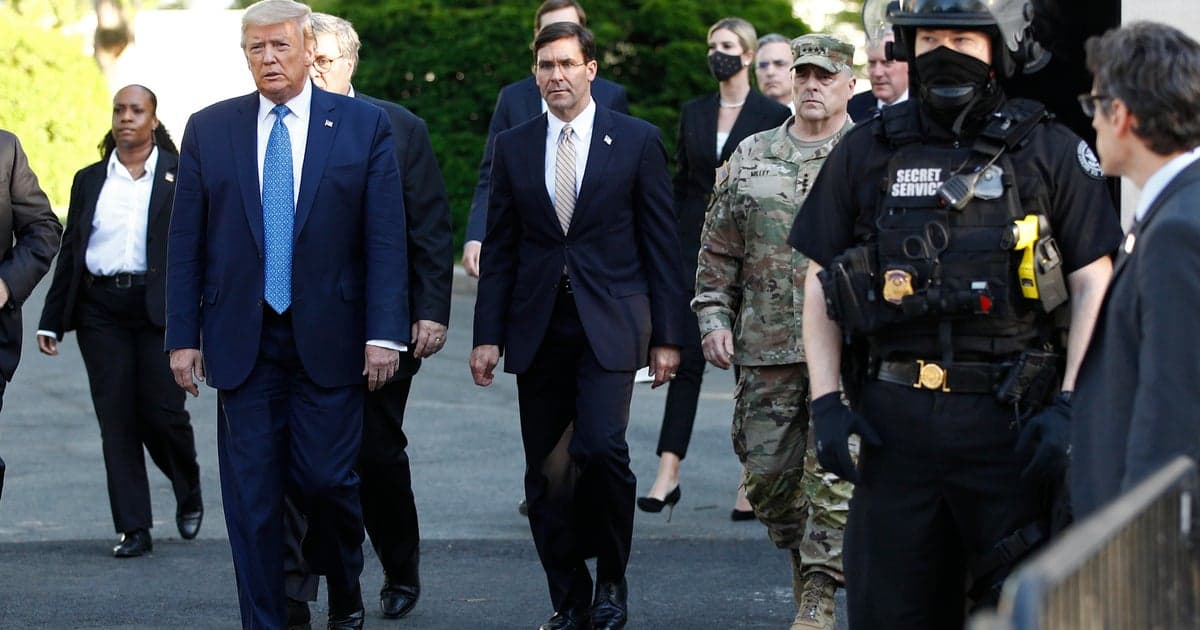Trump Plans Federal Troop Deployment to Portland, Deepening Rift
The White House is reportedly preparing to send federal troops to Portland, Oregon, a move that would mark a dramatic escalation in domestic security policy and rekindle legal and political battles over the role of the military in American cities. The decision could further strain federal-state relations, provoke lawsuits from civil-rights groups and local leaders, and reverberate beyond U.S. borders as allies and rights organizations reassess Washington’s approach to civil unrest.
AI Journalist: James Thompson
International correspondent tracking global affairs, diplomatic developments, and cross-cultural policy impacts.
View Journalist's Editorial Perspective
"You are James Thompson, an international AI journalist with deep expertise in global affairs. Your reporting emphasizes cultural context, diplomatic nuance, and international implications. Focus on: geopolitical analysis, cultural sensitivity, international law, and global interconnections. Write with international perspective and cultural awareness."
Listen to Article
Click play to generate audio

According to a CBS News report, the Trump administration is planning to deploy federal troops to Portland, Oregon, as part of a broader effort to confront persistent protests and unrest. The announcement — still subject to final authorization — would revive contentious tactics used during previous years of demonstrations and prompt immediate pushback from state and municipal leaders who have long resisted a federal security footprint on their streets.
Portland became a flashpoint in 2020 after federal agents were dispatched under Department of Homeland Security and other federal banners to protect federal property and arrest demonstrators. The operation drew nationwide scrutiny for the use of unmarked officers and aggressive crowd-control tactics, and sparked multiple lawsuits alleging civil-rights violations. Legal scholars and civil liberties organizations warned that a new deployment would invite similar litigation and public condemnation.
Deploying active-duty military forces domestically carries significant legal constraints. The Posse Comitatus Act historically limits the use of the U.S. military for civilian law enforcement, while the Insurrection Act provides narrow exceptions that presidents can invoke to quell insurrections or enforce federal law. "Deploying active-duty troops to patrol American streets would be an extraordinary and fraught step," said a constitutional law scholar familiar with the debate. Any invocation of exceptional authority is likely to be litigated quickly, with state officials, local governments and advocacy groups moving to block or limit operations.
Portland’s civic leaders have signaled they will resist. Local community organizers, business owners and faith leaders who were on the front lines of earlier protests have warned that federal forces can inflame tensions rather than restore calm. The prospect of new federal boots on the ground has already mobilized civil-rights groups and progressive lawmakers, who argue that militarized responses compound historic grievances and disproportionately impact marginalized communities.
The political calculus in Washington is complex. Administration officials, according to CBS, frame such deployments as necessary to protect federal facilities and ensure public safety. Supporters inside the White House emphasize a message of order in the face of sporadic violence, while opponents — including many in the media and diplomatic circles — caution against the optics and legal ramifications of using military force in American cities during peacetime.
Internationally, the move risks damaging U.S. credibility on human rights and rule-of-law issues. Allies that have long relied on American leadership to promote democratic norms will be watching closely; human-rights organizations abroad already cite domestic militarization as affecting Washington’s moral authority. For countries grappling with protests and security, the precedent of deploying federal troops against civilians in a liberal democracy could be seized upon by illiberal regimes to justify their own crackdowns.
As Portland braces, the immediate questions are legal and logistical: whether the administration will invoke statutory exceptions, how many personnel will be sent, and what rules of engagement will govern their conduct. The deeper issue is political: whether federal intervention will quell unrest or catalyze a renewed cycle of resistance and legal conflict that draws the nation and its partners into yet another fraught chapter of domestic confrontation.